Herniated Disc – What Are The Symptoms?
A lumbar disc herniation causes pain in the lower back, which can radiate through the sciatic nerve to the legs.
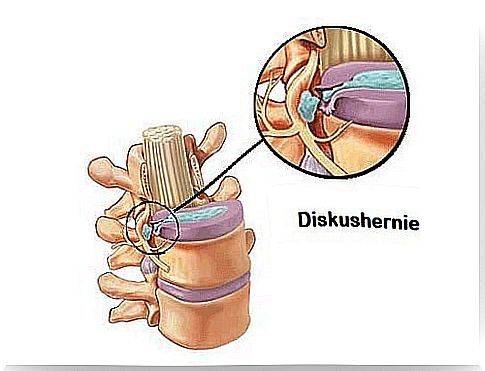
There are many people who suffer from a herniated disc, also called a herniated disc. This is often very painful and can limit everyday activities. It is therefore good to know the symptoms in order to be able to treat the symptoms early on.
The different parts of the spine (bones, muscles, and ligaments) can cause a variety of problems. You can learn more about this topic in the following article.
How do you recognize a herniated disc?
1. What is a herniated disc?
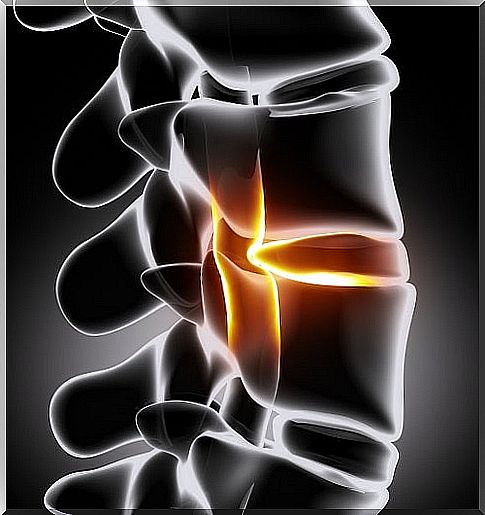
Is it really the intervertebral discs in the spine that can cause so much pain and discomfort? Think of the intervertebral discs as resistant tissue that sits between the bones of the spine.
The intervertebral discs are soft on the inside and hard on the outside. They work like shock absorbers and adapt to the movements we make every day. In a herniated disc, the soft tissue comes out and presses on the nerves, which can cause great pain.
2. How does a herniated disc occur?
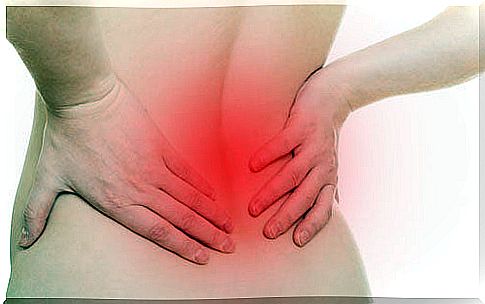
In general, a herniated disc often occurs with age. Over the years, the spine becomes less resilient, it becomes a little rigid and it can happen that a spinal disc tears.
Because these also become rigid as they lose fluid and go through a degenerative process. If you have back pain and don’t know where it’s coming from, understanding the symptoms is a good idea.
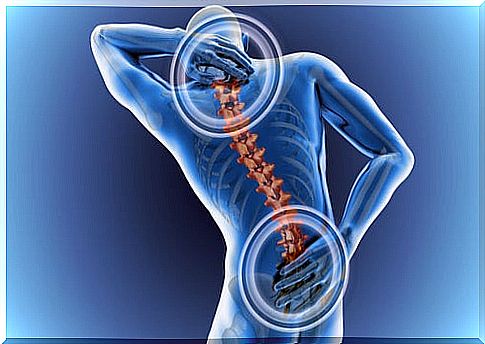
- First, find out which part of the body is causing pain to identify the exact location of the herniated disc. This is very important.
- If the pain occurs in the legs, when the legs are falling asleep, is heavy, or if you feel a tingling sensation, the lumbar discs may be affected. If you have pain in the middle of your back, the herniated disc is likely to be in this area. If there is tension and pain in the neck area, it is a cervical disc herniation.
Symptoms
- Symptoms of a cervical herniated disc: neck pain, rigidity in the neck, no strength to move the neck to either side, spasms in the neck that can radiate to the shoulders and arms. You may even feel dizzy and faint.
- In addition, arms and hands often fall asleep at night and tingling occurs. In fact, you may not be able to lift any more weight.
- Symptoms of a herniated disc in the lumbar region: In this case, the pain occurs in the lower part of the back. Again, there is often a tingling sensation and a hot feeling when you keep your back straight. Muscle stiffness is usually associated with cramps that can extend into the legs. Many people even feel pain and tingling in their feet. In severe cases, it can also lead to loss of sensation in the feet or incontinence. In these cases, you should see a doctor immediately.
- Doctors also speak of a referred pain. What does that mean? This is true when the pain occurs in a different area rather than where the herniated disc is. For example, the affected disc may be in the back, but the pain is in the legs. Often there is also pain in the gluteal muscles, which can extend to the legs. If so, you may have radiculopathy. The doctor will make an accurate diagnosis.
4. When should a doctor be consulted?
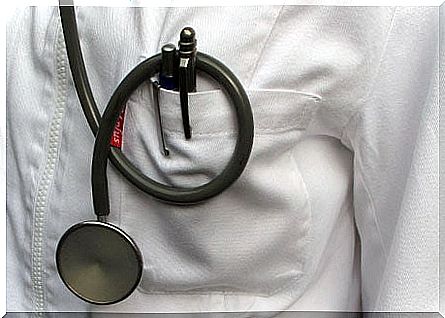
The pain from a herniated disc can be so severe that a normal life becomes impossible. Often there is difficulty walking, working or lifting objects. It can also lead to difficulty sleeping or sitting.
If symptoms persist for more than two weeks, then you should see a doctor. They will then examine you thoroughly and make a diagnosis.
If you also suffer from problems such as incontinence or loss of control of the sphincter , then you should call the emergency doctor.
In this case, the intervertebral disc affects normal body functions and this should be treated as soon as possible to avoid complications.
In these cases, the affected intervertebral disc is usually treated surgically. But you don’t have to worry because it is a relatively simple procedure and you will soon be able to lead your normal life again.
If you experience pain and other symptoms, you should consult a doctor for the best treatment and not to affect your quality of life.









